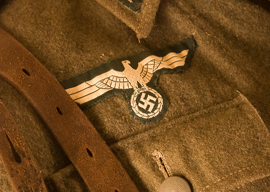
August 11, 2017

Source: Bigstock
Would the rank and file of the Army, the sergeants and the junior officers, have supported the coup? The SS, powerful, disciplined, and feared, would have sought revenge. Hitler’s designated successor, Goering, was still a powerful figure, a ruthless man of action. I suspect that any initial success that the coup might have had would not have lasted long. There might even have been civil war. Such considerations must have been a deterrent to many officers who feared that Germany would lose any war in 1938–39, and were inclined to wish to be rid of Hitler. What is clear is that the number of senior officers who were so opposed to Hitler’s military adventurism, so afraid that this would lead Germany into a disastrous war, was quite small; and that they were aware that they didn’t have popular support. Only a handful were prepared to act, and many opponents of the regime would do so only if they had secured the approval and support of the Army High Command, which equally clearly wasn’t on offer. It’s also the case that right-wing nationalist anti-Nazis agreed with Hitler’s determination to upset the settlement imposed on Germany by the Treaty of Versailles. They approved of the Anschluss with Austria and, like Hitler, wished to regain lost German land in Czechoslovakia and Poland. They hated the Nazis, but not their foreign policy—so long as it was successful. And, as it turned out, the generals and senior officers remained loyal, bound by their oath, long after Hitler’s war was evidently being lost.
Indeed the German mystery of the war is not why Hitler wasn’t overthrown or assassinated, but why the army continued fighting so bravely and obstinately to the end.